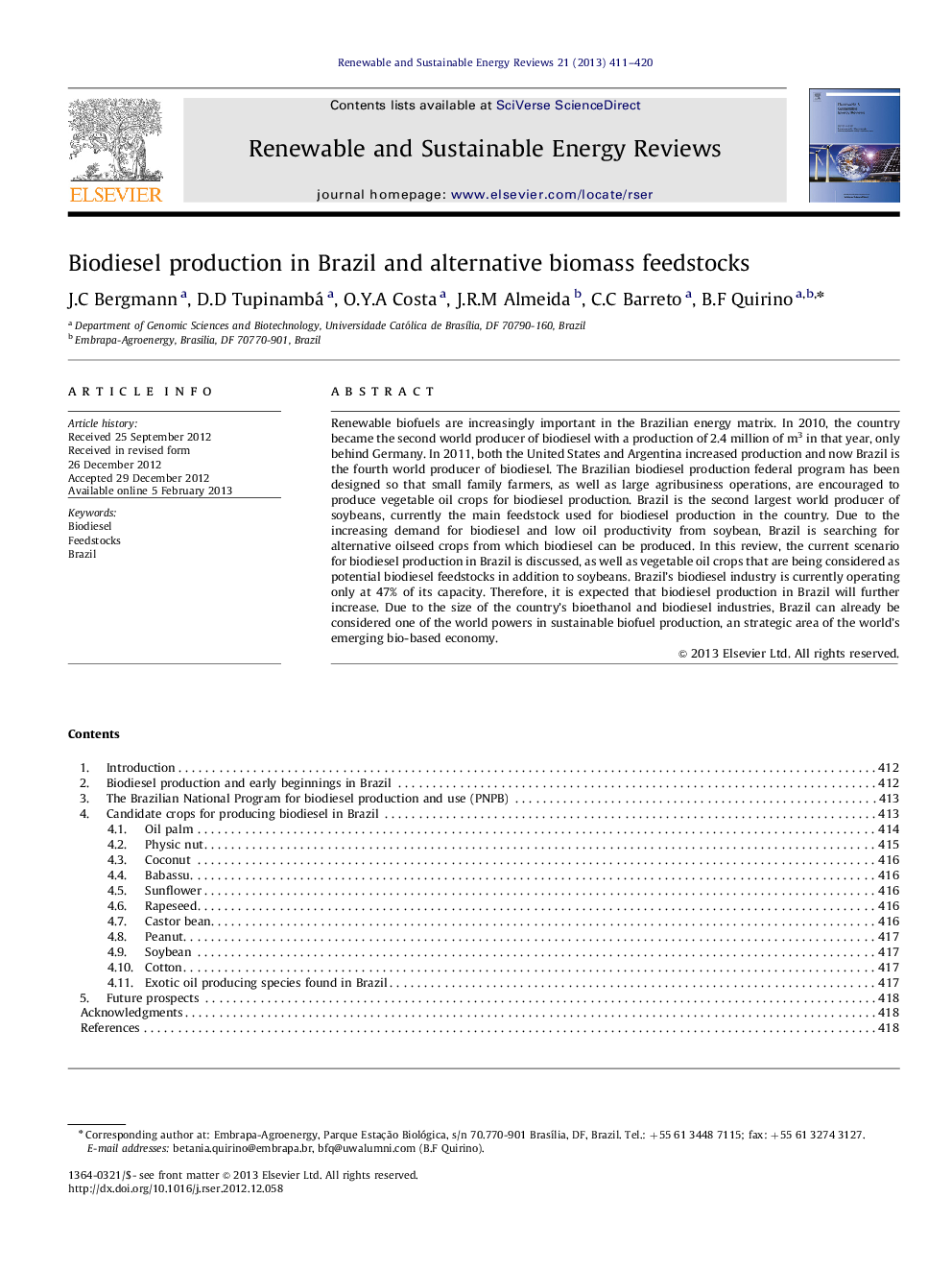| Article ID | Journal | Published Year | Pages | File Type |
|---|---|---|---|---|
| 1750161 | Renewable and Sustainable Energy Reviews | 2013 | 10 Pages |
Renewable biofuels are increasingly important in the Brazilian energy matrix. In 2010, the country became the second world producer of biodiesel with a production of 2.4 million of m3 in that year, only behind Germany. In 2011, both the United States and Argentina increased production and now Brazil is the fourth world producer of biodiesel. The Brazilian biodiesel production federal program has been designed so that small family farmers, as well as large agribusiness operations, are encouraged to produce vegetable oil crops for biodiesel production. Brazil is the second largest world producer of soybeans, currently the main feedstock used for biodiesel production in the country. Due to the increasing demand for biodiesel and low oil productivity from soybean, Brazil is searching for alternative oilseed crops from which biodiesel can be produced. In this review, the current scenario for biodiesel production in Brazil is discussed, as well as vegetable oil crops that are being considered as potential biodiesel feedstocks in addition to soybeans. Brazil's biodiesel industry is currently operating only at 47% of its capacity. Therefore, it is expected that biodiesel production in Brazil will further increase. Due to the size of the country's bioethanol and biodiesel industries, Brazil can already be considered one of the world powers in sustainable biofuel production, an strategic area of the world's emerging bio-based economy.
